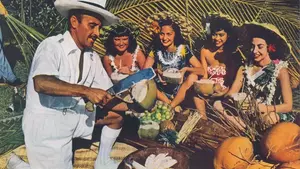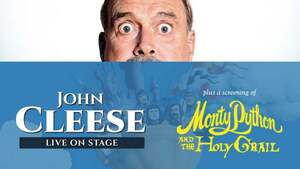Daytripping with Ralphy
by Shelton Hull
Few things have been of equal interest to me in the y2k than Ralph Nader’s
run for the presidency. I’ve always felt that he was right on the core
issues, issues the other boys prefer to ignore: corporate power and campaign
finance are the issues from which all other issues spring. How can you lobby
politicians on anything if you can’t exercise some measure of control over
their presence? You can’t, which explains the state of politics today.
Everybody’s bought and paid for before the American people get to see them,
before we know their names. Corn-fed sock puppets over the hands of big
business, gripping the throats of workers and consumers around the world
like Sheri Lewis and Lambchop on angel dust. There is a direct correlation
between the electoral system and present conditions, and Nader recognizes
this. He has degrees from Columbia, Harvard and Princeton and knows the
language of political jive and speaks it in small rooms in front of small
crowds… but not lately. Nader’s campaign filled large arenas in major cities
all year – New York, Chicago, Philadelphia, LA, and it came to my state of
Florida. It’s over now, the project fell just short of projections, and the
pros are thinking about 2002. But a look back is worth taking for clues as
to future strategic flaws.
I didn’t know Nader was coming to Jacksonville until Will Powr told me.
David Krest, who oversees “David’s Table” at Fuel on Sundays, was cooking
Nader’s food for the ride from UNF to UF, and he was able to get me into the
press conference. My first thought was “Why do I have to be gotten in? Am I
not legit media myself? Who’s written more about Nader than me?” Of course,
I was highly interested in going–so interested I arranged for rides and
entry with both David and Joe Flowers, who drove Nader from the airport.
(Insurance against my habit of being late to things.) I was to meet David
and Will at Fuel at 11:30 am, but I foolishly tried to take a nap beforehand
and missed them. Luckily, Tony Gancarski was going, too, so he took me.
When we got to the University Center, we had to get our names checked off of
some list; others not on the list were standing outside the door. This
struck me as weird: why not have it open to the public? Only 53 people in
Jacksonville voted for Nader in 1996 (or so I’ve heard), and there was no
reason not to expect an exponential (10x) increase in 2000. Jacksonville has
some of the laziest voters in America; even I skipped the poll in 1996. Such
a deficit could be turned into an attribute. The Lilliputian level of civic
involvement leaves much room for the expansion of progressive ideas – so why
the list? Does a guy polling at 3% really want to get exclusionary? I figure
they were expecting a lot of people, hence the need for certain key figures
to have spots reserved inside. But turnout was anemic, even in that small
room: 50 chairs were filled with 31 asses, and 42 others (including the
Green Party nominee and staff) stood along the wall curving around the room.
All the local media were represented, though most gave no advance notice of
Nader’s arrival.
Nader, in charcoal suit, pale violet oxford shirt with button-down collar
and burgundy tie, stood out well against eight tan panels, 50 feet high,
that made up the wall behind him. Nine Nader signs on the wall and one on
the podium–two microphones. Among attendees: four photographers, five
videocameras (three pro, two -am), and nine people with pens and paper out,
including Corrina Steiger of FolioWeekly and me. She asked what publication
I was covering the event for. “My diary,” I replied, and I meant it. Besides
my function as journalist covering an actual Presidential candidate on the
trail, as a citizen I was thrilled to see the best candidate. My brazen
advocacy of Nader in the column was incompatible with straight reportage, so
she did it for them and I came freelance (though their cards were great for
getting in).
Most reports I’ve read on Nader mention his supposed lack of charisma, and I
don’t buy it. They mistake seriousness for humorlessness, and focus for
monotony; it’s an example of how print media has internalized the values of
television in eschewing anything remotely resembling a major interplay
between people and their own brains. The basic structural rules by which the
mainstream press operates preclude a guy like Ralph Nader from injecting
more complicated theoretical lines into the debate have a stifling effect on
the national consciousness. Ideas are meant to be dispensable under current
conditions, easily broken down and processed because it’s composed of
nothing of substance–cotton candy for intellectuals.
Nader opened the floor for questions post-speech. Lori Aragon from WTLV 12
was there, and men from the Times-Union and WJCT. I didn’t really pay
attention to them, preferring to concentrate on the candidate. I wanted to
ask him about his plans for the projected budget surplus (segue into query
as to the accuracy of the projections), about improvements in
education–good topic on campus–about potential Supreme Court nominees and
cabinet appointments, but I held back. This will irritate me for at least
the next four years, failing to help elucidate the Nader platform before the
assembled local media…speaking of which, I did ask about media
concentration–namely, whether he had specific policy ideas for reversing
media ownership trends. I was hoping he’d advocate repealing the
Telecommunications Act of 1996, which demolished ownership limits for radio
and tv stations, and also cleared a path for media mergers big & small.
Znet reported in late October that Time magazine’s website, time.com, was
running an online presidential poll, in which 58% of over 1.8 million
respondents had voted for Nader–exactly twice that of runner-up GWB. This
1.8 M is about 1,000 times the usual sample group for the “official”
CNN-Time poll, where Nader pulled 3%. I’ve always felt that polls were
bullshit, based on the belief that demographic profiles hold the key to
voter preference, but this had heavily positive implications for Nader 2000.
Internet users are typically young, educated and actively intellectual, with
disposable income. Having access to a world of information in seconds leaves
them instinctively open to new ideas. They are thus more likely to vote.
Consider: there are about 100 million registered voters, but only 45% of
them are projected to vote– 45 M. 5% of 45 M is 2.25 M. 59% of 1.8 M is
1.062 M, which is about 2% in real numbers just from a sample group that’s
only 5% of all likely voters. Extrapolate those numbers across the spectrum,
and consider that new and formerly abstentious voters are more likely to go
Green than regular voters and suddenly, instead of being a hopeless
longshot, Nader may well be the front runner, depending on which polling
method one considers most like a real election–voluntary of solicited.
Okay, this is the last time I’m mentioning Ralph Nader this year.
I was told by well-meaning people that a vote for Nader was a vote for Bush,
because Nader, being doomed to failure, could only hope to “steal” votes
from Gore in swing states. This, apparently, is bad–as if your vote is
Gore’s birthright, like so many distressed properties. Whomever wins today
may well be the worst president of all time. He will sell the ground out
from unborn feet forever, and alienate his own base by pandering to
“moderates” in the other party. Capital punishment will continue, the drug
war will drag on, workers and consumers here and abroad will continue to be
screwed like the next White House intern-groupie. And you’ll all keep
complaining, and you’ll continue being ignored. For America and the world,
choosing between Gore and Bush is like choosing between a bullet in the gut
or one in the head–one takes longer, one hurts more, but both have the same
result. Not that I hate these guys- I don’t. I enjoy my politicians, even the
ones I don’t agree with, because their job is very important. They deserve
respect, perhaps support. Nader’s for gun control, and for dismantling the culture
of violence and vileness dictated by corporate control of the democratic
process. Do you want the Internet to wind up like TV and radio?
I had no vested interest in a Democratic victory, because the DNC has lost
its populist patina in moving rightward. Can’t really blame them.
Frankly, I don’t care if Bush is elected, because I’m a journalist, and I’m
ready to profit from the collapse of our society. I voted for Nader because
I feel it’s my duty as an American citizen, but I’ll ride the wave wherever
it goes. It’s you, the average hardworking patriotic fella, who needs to
worry. You’re the one who works longer hours for fewer real dollars than
your parents. You’re the one who could be laid off any minute because your
CEO just found or created some miserable third-world population who’ll do
your job for pennies an hour. You’re the one who’s scared to go out at night
because our society is collapsing from vice and brutality. You’re the one
who ingests minute quantities of chemicals in food, water and air
continually, then wonders how people get cancer. You’re the one who drops
20% of your salary to the feds and can’t even get Cuban-quality health care.
You’re the one who might die overseas enforcing a ridiculous foreign policy.
You’re the one who doesn’t understand that, from a certain perspective, the
status quo is the ideal condition. You’re the one who didn’t vote for Nader
because “he can’t win”… but what if he won?
Update: Nader did not win. I actually thought the old guy would pull it off.
Not really. His 2.96 million votes would have met the 5% requirement for
federal matching funds if the turnout had been like 1996, which sucked. But
turnout was greatly increased nationwide, despite bad weather in places and
bad candidates on the ballot. It’s my opinion that voters came out in such
large numbers not to vote for a given candidate, but to vote against a
candidate. Anger is the lifeblood of activism, anger purged in pursuit of a
goal, and just like in wrestling, the heels get all the best work. No matter
how far they try to move their party to the center and beyond, they’ll
always be highly polarizing figures. The closeness of this election simply
denies them and us even the illusion of consensus, and that will undermine
their attempts to lead unless they awkwardly toe that line between being
president and being a caretaker, of doing the popular thing and doing
nothing good at all. Clinton/Gore made a lot of concessions to stay on top,
but they got some results- better than the current alternative. Here’s the
rub: whomever loses between Bush and Gore is a likely frontrunner in 2004,
and a rematch may happen. Bush vs. Gore could be the Ali-Frazier of American
politics.
2.96 million Nader voters ignored the dire predictions and voted to punish
Mr. Gore for eight years of blatant rhetorical hypocrisy and “evolving” his
core beliefs so many times he seems to have none left. The Al Gore who wrote
“Earth In the Balance” would get slightly more votes than Nader; the modern
DLC centrist gets 46 million- more than four of the last five Presidential
winners– and still gets screwed for ignoring the base. The serious left is
finally starting to coalesce a bit, which is good for politics in general
and pivotal for the party. Bush, in name alone, to say nothing of behavior,
is the best organizing tool the left could ever hope for. Unlike Clinton
(whom the far right secretly adores because he makes their job so easy),
citizens might not think that Democrat=progress. Bless his heart, but
Clinton has continued to move in the same direction as his predecessors in
key areas, often faster: concentration of wealth, incarceration rates, the
uninsured etc. – all worse. The economy flourished because of a revolution in
computer technology which, being intellectual and not material in origin,
can not be overtly promoted by the government–unlike, say, defense
appropriations. All they can do is stay back and not interfere.
Gore all but ignored the major issues of note to Nader voters – starting with
campaign finance reform. Gore personally helped break the few rules
governing campaign finance, and wisely avoids public discussion of ideas
like a “none of the above” option on the ballot. He was once the reigning
environmentalist in congress, he introduced many basic concepts of modern
environmentalism to the mainstream, he once condemned the combustion engine
and predicted its demise within a generation, and he won’t even take two
minutes to riff on oil drilling by Occidental in South America or the lethal
business practices of Ford and Mitsubishi, which are both alleged to have
covered up information on flaws in product design. He could score points on
these points, but I don’t think he wants to enter this territory.
Gore will hopefully emerge from this experience–winner or loser–as a
better man and politician. He can retrench, write another book, collect his
thoughts and theories away from the pressure to adapt ideas to a political
marketplace. In 4 years he’ll be a better candidate if he loses, whereas a
win will only validate and reward a systematic centralization of policy that
the current administration has mastered. At press time the candidates are
separated by about 300 votes in FL, and I hope Gore can create them from
uncounted little bits of paper that hang from the holes. By merely dropping
the slightest of hints about fairly major issues, he could’ve gotten those
and more, even though we knew he was pandering. Gore just assumed that those
groups would have no choice to vote for him because the threat of a Bush win
was too scary. Big goof.
The Nader campaign did pretty well, despite failing to win 3%. Ralphy drew
2.6 million votes, a sum that would have exceeded the requirement (2.25 M)
based on a 1996ish turnout. He got screwed out of matching funds by an
abnormally high turnout–67% in FL (over nine million), where he got 3%.
Lots of people turned out to vote against Bush or Gore (as opposed to for
them), and Nader’s grassroots organization was swept away in the tide. But
Nader achieved the major goals of his campaign: to raise $5 M and to
establish the Green Party as a presence in the political system. He actually
got over $7 M, and Nader has become the public face of indie
politics – appearing more often per day than during the campaign. The
argument that he “spoiled” the race for Gore is hard to deny
statistically – his total in FL (96,000 votes) was 30 times the margin
separating Bush and Gore. But that means Pat Buchanan spoiled the popular
vote margin for Bush, and Harry Browne spoiled it for all four, and even the
Socialist Workers’ Party cost Al Gore leadership of the free world. Quick,
someone dig up Joe McCarthy and prop him up at the chair of a bi-partisan
committee to investigate!












